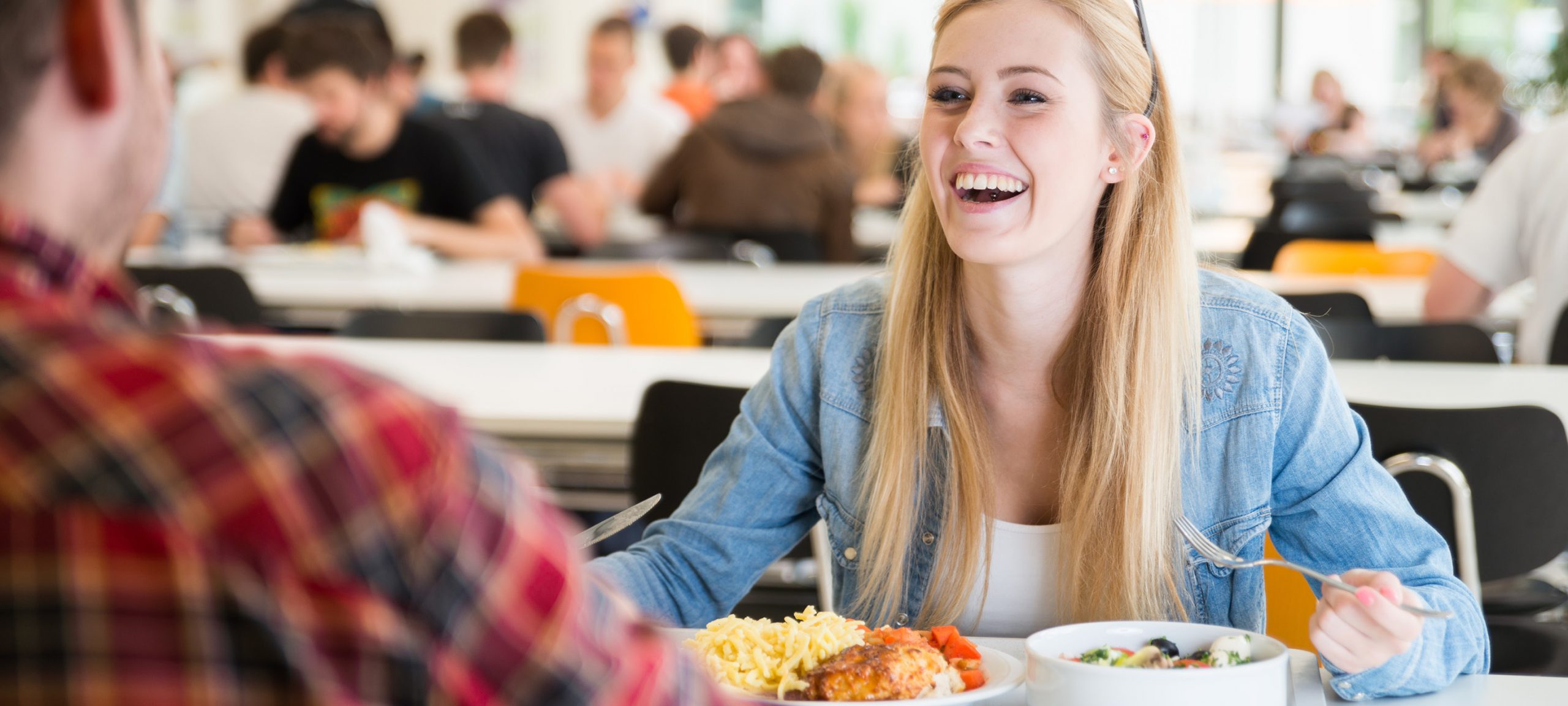
Student nutrition is a cornerstone of health and wellness. A properly nourished brain helps college students with attention, memory retention, and mood regulation, and provides the physical energy and stamina necessary to stay alert during classes or participate in physical activities like athletics.
Busy schedules, tight budgets, and limited access to nutritious cooking materials are among the hurdles students face when trying to maintain a balanced diet. Judgment-free educational materials can offset these challenges by helping students better understand methods for optimizing their nutritional health.
College students encounter many barriers to eating an optimally nutritious diet
Students frequently encounter obstacles to eating a well-balanced diet. One big challenge students face from the time they step foot on campus is simply understanding which foods and drinks provide the most nutritional benefits. Students may arrive at college having not previously learned about the connection between nutrition and health, or may not have well-developed healthy eating habits.
Students may also struggle with the novelty of taking care of themselves, whether it’s because they’re away from home for the first time, dealing with a busy schedule, or navigating more autonomy. This can lead to less-than-optimal choices in the dining hall, coffee shop, vending machine, grocery store, or even when prepping food in a home kitchen.

Food insecurity is another barrier that prevents optimal student nutrition. According to a 2017 review of studies, researchers estimate that approximately one in three students faces food insecurity on U.S. college campuses. These students reported eating fewer fruits and vegetables, poorer health, and lower GPAs, and deferred their studies more often than students who were not food insecure.
College students can use help when it comes to improving their nutrition literacy, food preparation skills, and motivation, so they can reap the physical, emotional, and intellectual wellness benefits that result from an optimally-nourished body and brain.
How your school can build a culture of health and wellness—including better student nutrition
CampusWell can help your students to make better nutrition choices by providing your school with ready-made, student-centered articles and videos on healthy eating. CampusWell creates engaging content that encourages students to eat foods for fuel and enjoyment rather than to diet, and to eat mindfully by paying attention to their physiological hunger and satiety cues. Our nutrition content also promotes body positivity and educates students about disordered eating, directing students to supportive resources on campus and beyond so they can reach out for help if and when they need it.
In addition to educational content, a CampusWell subscription for your school includes practical cooking tips and recipes created by and for students. This includes a monthly UCookbook recipe that is simple, budget-friendly, uses easy-to-find ingredients, and often includes a step-by-step video tutorial on how to prepare the dish.

Supporting the whole student through eight dimensions of wellness
At CampusWell, we understand that academic success depends on the holistic well-being of your students. In addition to our nutrition content, we publish timely, research-based articles to help students learn how to achieve better efficacy in all eight dimensions of wellness, including financial wellness (income generation, budgeting), intellectual wellness (studying, test-taking), and emotional wellness (stress reduction, meditation).
CampusWell is a versatile platform that helps make a multi-departmental wellness initiative simple, sustainable, and engaging. Using technology, high quality, research-based content, and proven marketing strategies, together with your existing assets, we deliver a campus-wide wellness platform that will positively impact your students and institution.
Cleveland Clinic. (n.d.). Food & nutrition. Healthy Brains. https://healthybrains.org/pillar-nutrition/
Jung, S. E., & Bice, C. (2019). The role of self-identity in predicting college students’ intention to consume fruits and vegetables. Journal of Nutrition Education and Behavior, 51(2), 173–181. https://doi.org/10.1016/j.jneb.2018.07.015
Knol, L. L., Robb, C. A., McKinley, E. M., & Wood, M. (2019). Very low food security status is related to lower cooking self-efficacy and less frequent food preparation behaviors among college students. Journal of Nutrition Education and Behavior, 51(3), 357–363. https://doi.org/10.1016/j.jneb.2018.10.009
Lovan, P., George, F., & Coccia, C. (2022). Calorie compensation and self-regulation of food intake in college students. Journal of Nutrition Education and Behavior, 54(4), 311–319. https://doi.org/10.1016/j.jneb.2021.12.009
University of Washington. (2020, March 2). How nutrition impacts the brain and mental health. The Whole U. https://thewholeu.uw.edu/2020/03/02/nnm-2020-nutrition-and-the-brain/
Related Articles
More from Author
[DCRP_shortcode style="3" image="1" excerpt="0" date="0" postsperpage="6" columns="3"]

